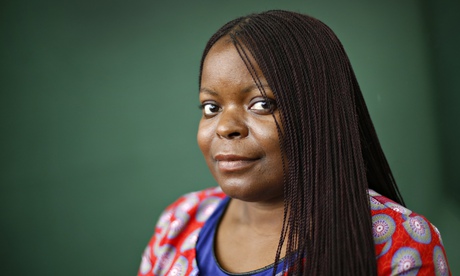
Petina Gappah’s fine short story collection, An Elegy for Easterly, explored with wit and fury the absurd, scandalous predicament of Zimbabwe under Robert Mugabe, and the tenacious dreams of its people. The sharply memorable voices, in a debut that won the Guardian first book award in 2009, ranged from would-be Rhodes scholars to coffin-makers. They encompassed the embittered widow of one of the president-for-life’s sycophants, and township urchins puzzling over what “cents” are when a loaf of bread costs $500,000.
Gappah’s ambitious first novel is a surprising follow-up, abandoning as it does the polyphonic strengths of her debut. Its unreliable narrator is a woman named Memory, whose parents, she relates, sold her to a stranger when she was nine years old. The novel is her testament from death row, written at the behest of her lawyer, to aid an appeal against her conviction for murdering this man, a professor called Lloyd. The police who interrogated her, securing a confession she maintains was false, presumed him to be her white “sugar daddy”. But a suspicion of abuse is present from the start.
Memory, whose skin cracks and blisters in the sun, is accustomed, as an albino, to being regarded with “fear-laced fascination and suspicion”. That “the world’s gaze came in a double take” might hint at parental rejection of a condition that “makes me black but not black, white but not white”. Yet mystery deepens about her family life, with her volatile, at times cruel mother, and loving yet wretchedly unhappy father, both contending with the deaths of two of Memory’s siblings, their son Gift and daughter Moreblessings, or Mobhi. In sections organised around her various homes, Memory’s recollections move from a Harare township to a mansion in the white suburbs, and then to studies in Europe. But as she circles ever nearer the events that landed her in the women’s wing of Chikurubi prison, a web of secrets and delusions comes to light.
The family scenes are among the most affecting, with the mother’s belief in ngozi spirits creating a terrifying uncertainty, while the father’s misery is poignant. But in an accelerating denouement, the emotional heart of the novel shifts to Memory’s ambiguous relationship with Lloyd, the man who “took her in”, and Zenzo, a young artist with whom she fell in love. With his dreadlocks and his German girlfriend, the rebellious painter seems in some ways reminiscent of Dambudzo Marechera, the phenomenally gifted and self-destructive Zimbabwean writer who won the Guardian fiction prize in 1979 for The House of Hunger, and died of Aids aged 35. The dilemmas of Zenzo’s career, which rises with the country’s collapse, could fill an entire novel (“Until he could get to be what he wanted, he had to be what the world wanted him to be”). Yet frustratingly, like Lloyd’s grandmother Poppy, a flapper charmingly stuck in the jazz age, Zenzo remains a tantalising vignette.
This is a powerful story of innocent lives destroyed by family secrets and sexual jealousy, prejudice and unacknowledged kinship across the “artificial divisions this country has erected to keep people apart”. From its burden of guilt flow reflections on fate, religious superstition and the fallibility of memory, with allusions ranging from Thomas Hardy – including a fatefully unread letter – to the Greek furies. At its best, individual lives mesh with the country’s distorted fate, from the violent persecution of homosexuals and the lack of provision for women with mental illness, to a shortage of hangmen. Farm invasions, and the resulting deaths of white farmers, credibly explain the court’s haste in imposing an exemplary death sentence on a woman.
Yet, containing the seeds of what I suspect should have been several novels, The Book of Memory is beset by structural flaws. An existential death-row monologue, with scenes from a women’s prison, is welded to a whodunnit. The introduction of names without explanation builds irritation rather than suspense, while red herrings and withheld information sit oddly in the testimony of an educated woman trying to save her life (Scheherazade is name-checked, along with the prison writings of Wole Soyinka and Ngugi wa Thiong’o).
The main flaw is the voice. The sole narrator, Memory, is deluded, traumatised and a bit priggish. Yet her tone alters little as she grasps the truth – one designed to shake readers’ assumptions, too. Most puzzling is the decision to direct Memory’s words not to her lawyer, or even to herself, but to a “white journalism woman”, as a prison guard describes the visitor from Washington DC. Gappah (left), who has argued convincingly against glossing Shona expressions for a foreign readership, has in the past declared herself “more willing to take the risk that the reader will fail to get something, than I am willing to risk losing the reader by condescending to explain everything”. This novel’s overt address to an American, who adds nothing to the plot, is neither credible nor necessary.
• To order a copy for £11.99, go to bookshop.theguardian.com or call 0330 333 6846. Free UK p&p over £10, online orders only. Phone orders min. p&p of £1.99.







